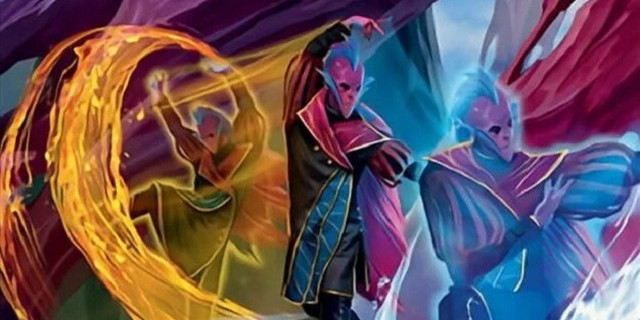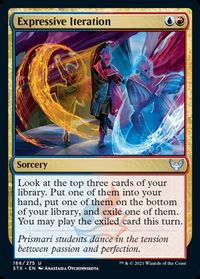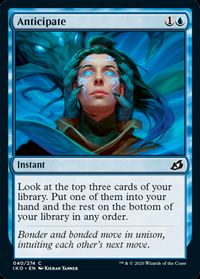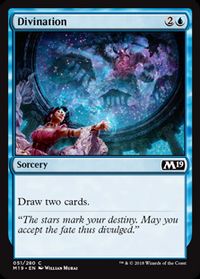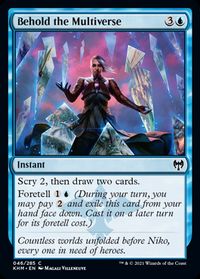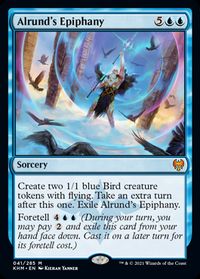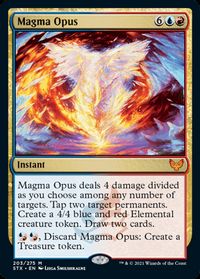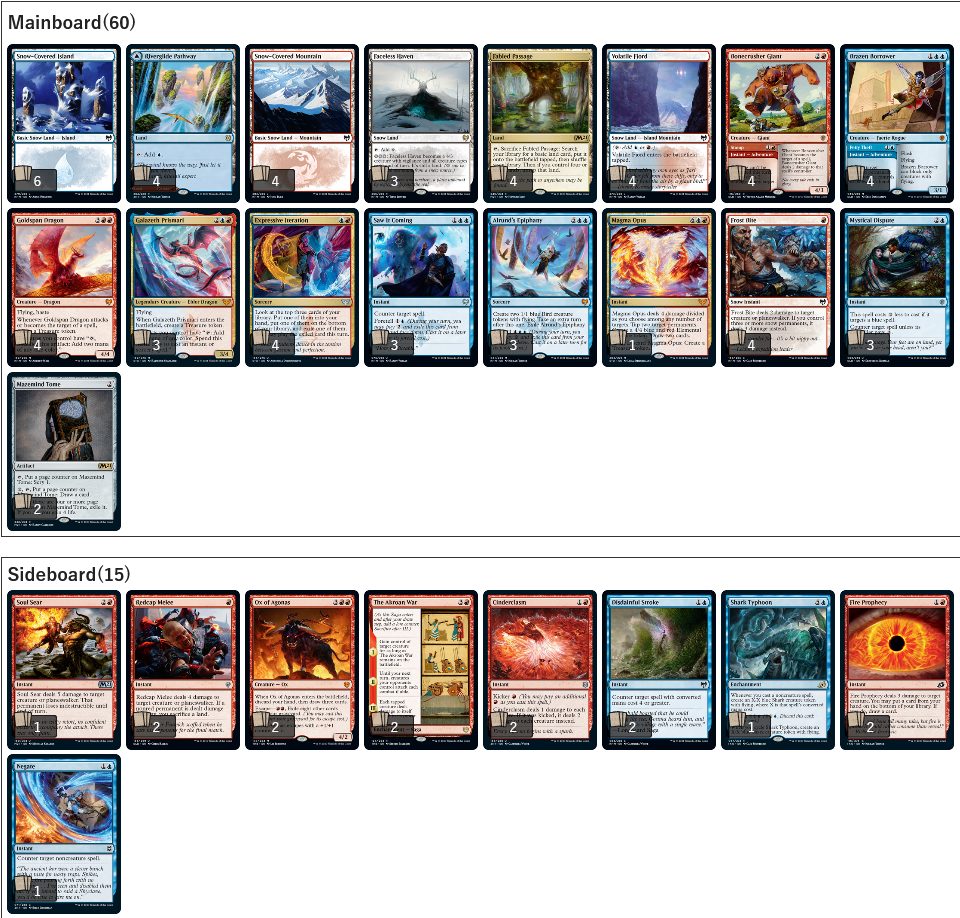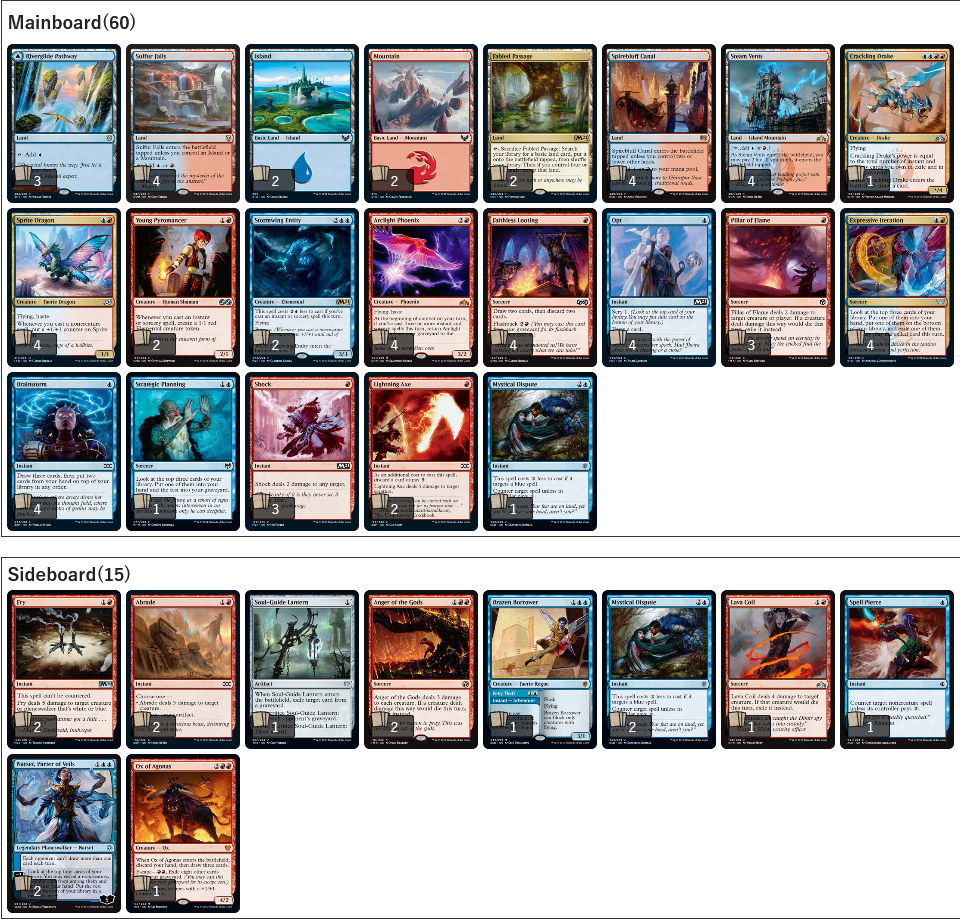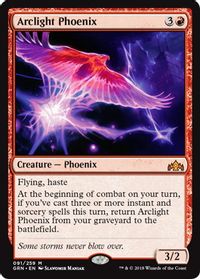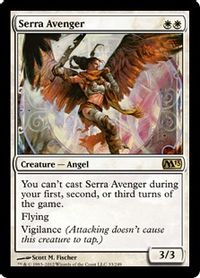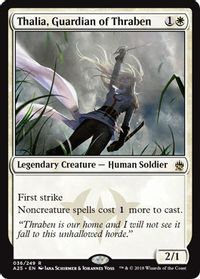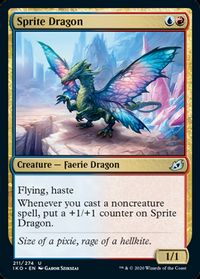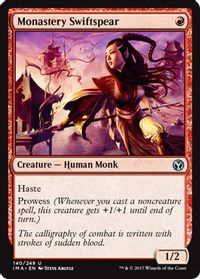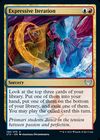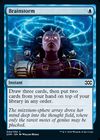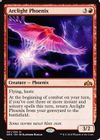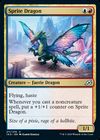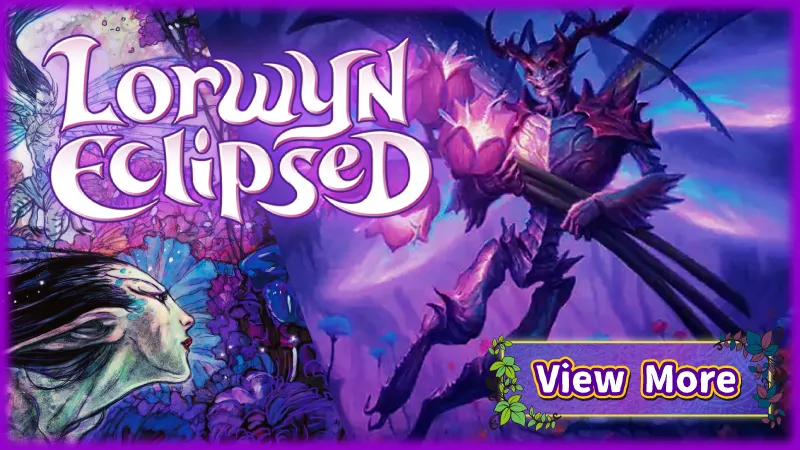Introduction
Hola!
Strixhaven has already been out for a few weeks and some of the cards have seen more play than others. However, it looks to me that one of the Strixhaven cards in particular is here to stay, particularly in bigger formats.
That card is 《Expressive Iteration》.
I mentioned in my Strixhaven Initial thoughts article that this card could make certain decks functional. It turns out this card is much better than that.
How Much Are We Getting for Two Mana?
I initially thought 《Expressive Iteration》 was a good mix of 《Anticipate》 and 《Divination》. In reality, it is closer to a sorcery speed 《Behold the Multiverse》 that you don’t have to foretell beforehand. At three mana, it would be a slightly better 《Read the Bones》. At two mana, this spell is extremely efficient.
Ideally, we want to play 《Expressive Iteration》 in a deck where most of the time it reads as: “Look at the top three cards of your library and put two into your hand.” At two mana, a card with this text would simply be one of the best card advantage spells we’ve seen.
Which Kind of Decks Want 《Expressive Iteration》?
Ideally, we would like our 《Expressive Iteration》 to almost always net us an extra card. The easiest way to do so is to simply have an available land drop. If our top three cards contain land and we exile it with our 《Expressive Iteration》, we would have a clean 2-for-1 out of our spell. Even if it’s quite obvious, it is one of the reasons for this spell to be so strong – it helps us hit our land drops, and it will be very useful if our deck is mana hungry.
Here we can see Seth Manfield’s Izzet Midrange deck from the last MPL split in Standard, where he used 《Expressive Iteration》 to fuel the manabase to cast expensive cards like 《Alrund’s Epiphany》 or even 《Magma Opus》.
However, we can also get even a better value of our 《Expressive Iteration》 if we get two spells in a situation where we don’t want more mana. However, for that to be true, we need to be playing cheap spells.
Take my Historic Izzet Phoenix deck, for example:
In this deck, in addition to the manabase, we have a bunch of 1-mana spells that go very well with our 《Expressive Iteration》. This way, every time we cast it on turn 3, we either need a 1-mana spell or land in our top three cards in order to generate card advantage consistently.
We’ve seen in Seth’s deck how 《Expressive Iteration》 can be used to make a deck stumble less even if they have a few expensive cards by helping you make land drops.
In the Izzet Phoenix deck, it helps us have enough lands and/or enough spells to trigger our 《Arclight Phoenix》. This means we want to play 《Expressive Iteration》 in decks that are either packed with cheap spells or decks that want to hit a lot of land drops. That’s a lot of decks!
I think 《Expressive Iteration》 makes both of the decks I used as examples simply manascrew and mana flood less, making them more consistent overall.
Sounds familiar? Yep! That’s what strong cards like 《Brainstorm》 or 《Ponder》 do.
《Expressive Iteration》 is clearly a very strong card that has a few things in common with those cantrips, and of those similarities is that it is also a difficult card to play properly.
Playing 《Expressive Iteration》
The Secret Mode
《Expressive Iteration》 is, in a way, a “《Serra Avenger》” card, meaning that we won’t be casting it until at least turn 3.
However, there are some situations where it is correct to simply cast 《Expressive Iteration》 on turn 2, turning it into simply an 《Anticipate》. 《Anticipate》 is not a powerful card, but having this option certainly makes the card better than it would be if it literally had the 《Serra Avenger》 drawback. Casting 《Expressive Iteration》 on turn 2 is something we will do very rarely, but it is worth considering since it potentially changes the outcome of a game.
The easier situation where we will cast 《Expressive Iteration》 on turn 2 is simply when we know we are not likely to have enough time to cast the card later in the game. This happens often because we are playing against aggro or combo and we feel under pressure while not having other plays. Note that even against those matchups, 《Expressive Iteration》 is not exactly a bad card as long as we can interact with what our opponent is doing, so we won’t necessarily cast it even if we don’t have a turn 2 play.
However, I think it is not that rare to cast 《Expressive Iteration》 if we have multiple copies of it in hand in relatively fast matchups, particularly on the draw. It also can help dig for a 《Force of Negation》 or 《Force of Will》 against combo decks even if we don’t get card advantage from it.
Another situation and one that is less obvious is when our deck is much stronger than our opponent if the game goes long enough. If your opponent’s deck is simply trying to go under you, casting 《Expressive Iteration》 early can dig for interaction if you are missing it. I think it is correct to cast 《Expressive Iteration》 on turn 2 with hands that are good enough to go over the top but are missing a piece or two of interaction.
Firing off an early 《Expressive Iteration》 on the play can also help us get an answer to 《Thalia, Guardian of Thraben》 in certain formats since it is a card that will also make our 《Expressive Iteration》 worse in the mid-game.
Your Lands
Keep an eye on your lands.
Most of the mistakes I’ve made with 《Expressive Iteration》 have are related to mana. I’ve had lands come into play tapped when it was awkward. I’ve been unable to cast spells I wanted to cast because I didn’t plan for them beforehand. It will depend on the deck, but there are many scenarios where having 《Expressive Iteration》 in your deck will determine how you play certain lands.
This could mean playing a basic 《Island》 and saving a 《Spirebluff Canal》 as your 3rd land if you would like to hit a removal spell out of 《Expressive Iteration》. It could also mean playing a Pathway in Standard choosing the Red side to have URR for turn 4 just in case we see 《Faceless Haven》 with 《Expressive Iteration》 alongside a removal spell so we get to have both the 《Faceless Haven》 AND the removal spell.
There are many different scenarios you can run into, but the general idea is that you have to plan around hitting different two-card combinations and sequence accordingly. Needing additional Red mana is the most common limitation since Red spells are often the ones that we need to cast immediately, but you will have to evaluate on a case by case basis.
Your Other Cantrips
Cantrips often work interestingly with each other. The first thing to notice is that 《Expressive Iteration》 can “shuffle” away from one of the cards you put back with 《Brainstorm》.
While playing with these two cards together, that is something we will often do. At the very least it will prevent us from being “《Brainstorm》 locked” and we will easily get our card advantage out of our 《Expressive Iteration》. However, in some games, we can do better, particularly if we have access to fetchlands or cards like 《Preordain》.
The important takeaway here is that 《Brainstorm》 – and 《Faithless Looting》 to some extent – get stronger the more cards in hand we have and 《Expressive Iteration》 is a card that will generate cards for us, making those cards stronger. For that reason, in a situation where we are trying to grind a game or sculpt a strong hand and we are able to shuffle back cards, it will often be better to start with 《Expressive Iteration》 and then 《Brainstorm》 later where we have more information and a bigger hand to decide how to craft our gameplan.
Having 《Expressive Iteration》 in our deck also often means we can fire our cantrips more easily. There are many spots in Magic where holding a 《Ponder》 is correct. There are even more spots where holding 《Brainstorm》 is correct.
I’ve talked about how to play Cantrips in 2020 here and how we should fire them off more often than before, and I think 《Expressive Iteration》 will make it right to fire them even more often since we will often have access to more copies of 《Expressive Iteration》 that will cleanly net us card advantage and potentially draw into more cantrips.
Keep in mind that even if I say to fire them off more often, that doesn’t mean to always do that. Analyze each situation individually; there is really no shortcut for this.
Deckbuilding Implications
What 《Expressive Iteration》 does to a deck in terms of deckbuilding can be tricky to define. On the surface, 《Expressive Iteration》 is a cheap card, but in reality, it fights for slots with the expensive cards that will help us win the long game, even if it happens to cost less mana.
《Expressive Iteration》 is another “air” card that we will have in our deck, which means it doesn’t affect the board or interact with our opponent in any way. If we cut cheap spells to add 《Expressive Iteration》, we will also make those 《Expressive Iteration》 weaker than where we cut something else, since 《Expressive Iteration》 wants us to exchange resources so we cast it without falling too behind on tempo.
This is why early plays like 《Sprite Dragon》 or 《Monastery Swiftspear》 play so well with 《Expressive Iteration》.
These creatures can be a win condition under some circumstances but in most matchups, it will mostly force our opponent to interact with us and make them spend a card and some mana on every one of them. Then, If we curve creatures into 《Expressive Iteration》 we will likely cast it on an empty board or better.
Tempo cards like 《Sprite Dragon》, 《Goldspan Dragon》, 《Brazen Borrower》, or 《Daze》 go very well with 《Expressive Iteration》 because we can count on it to keep our card count high while the rest of the deck is fighting for the mana efficiency.
Therefore, when building decks with 《Expressive Iteration》 keep in mind that not having enough tools to fight for tempo will make it weaker, yet it also needs to be played in a deck that is equipped to deal with the lategame, so it’s best to try to find a balance.
How to Play Against 《Expressive Iteration》
《Expressive Iteration》 is a premium target for countermagic in certain decks the same way all the 《Glimmer of Genius》 line of cards can be, but past that there is not that much you can do to interact with card drawing except try to attack their mana the turn they were going to do so.
Contrary to popular belief, I actually find playing around sorcery speed spells harder to play around than instants. The reason behind this is that when your opponent is threatening an instant speed action in your turn, you know they could have it and then you act accordingly, but playing against sorceries happens before they even get to untap. This doesn’t apply to decks that fully operate at instant speed, but if your opponent has a mix of sorceries, creatures, and instants, you will know which instants you should play around when they pass the turn but planning the game to make the rest of your opponent’s cards worse is trickier.
In this case, it can mean casting a removal spell in a situation where you might want to cast a cantrip. Another scenario that I want to note is that if you are playing a reactive deck against an 《Expressive Iteration》 deck, and they are on the draw and kept seven cards, they can’t really profitably cast an 《Expressive Iteration》 until an exchange happens, because they would end the turn with eight cards and just have to discard. This can lead to a situation where you can actually bottleneck their 《Expressive Iteration》 by simply waiting and making them use that extra two mana in the critical turns of the game.
The fact that it is not easy to cast 《Expressive Iteration》 on the draw in grindy matchups in the early game while also sometimes being slow against aggro makes this card relatively worse on the draw, particularly in pre-sideboarded games where our deck might be not that well-suited against our opponent’s strategy.
That’s it for today. I hope you enjoy resolving your 《Expressive Iteration》 as much I do!


